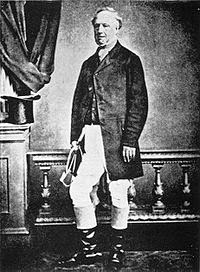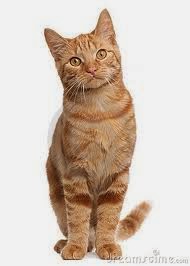In chapter one, American nurse Tory Bird, visiting Amsterdam with her sister Jane, meets Dr. Maximilan van den Nie whilst giving first aid to an injured English tourist. After a lovely weekend, Tory returns home to the United States. In chapter two, an early snowstorm hits on Hallowe'en night, and Tory is surprised that the car that goes off the road near her house (what a coincidence!) contains Max van den Nie.
For installment one, look here. Installment two is right here, installment three here, and installment four here.
THE HUGE ROSES (working title)
copyright 2014 by Betty van den Betsy; not for reprint or publication without permission
Chapter Two, part 3
For installment one, look here. Installment two is right here, installment three here, and installment four here.
THE HUGE ROSES (working title)
copyright 2014 by Betty van den Betsy; not for reprint or publication without permission
Chapter Two, part 3
His lavish compliment set Tory to stammering and blushing again. Before she became hopelessly entangled in counter-thanks and disclaimers, Max had leaned down from his great height and kissed her, very lightly, on each cheek. “The continental style,” he’d explained, and swung around, sliding gracefully into the powerful Mercedes before putting the car into gear. Thankfully, Tory had had – just barely – the presence of mind to reply in kind to his farewell wave before pressing her mittened hands against her cheeks. “Oh, my,” she breathed, watching her breath fog in the cold air. “Oh, my.”
The sudden hum of the refrigerator, leaping back to life, brought her back to the here-and-now. “A kiss on the cheek and I’m mooning around like a Victorian maiden!” she exclaimed to the puzzled dogs. “It’s already dark out and I haven’t gotten a thing done all day!” It was a silly thing to say, she realized, given the work she had done. “Anyway,” she thought, “what needs to be done on a snowy Saturday? I should bake some bread, or knit something, or, or, I don’t know – clone cartilage or something.”
She stood in the center of the comfortable kitchen, suddenly itching for a more dramatic, more active life. After the quiet company of Max van den Nie, her empty home seemed emptier than usual, and her busy, chore-filled life seemed prosaic and even dull. As she stood wondering what to do with her sudden burst of energy, the telephone’s loud bell burst into her discontent.
“Hey, kiddo,” her brother’s deep voice caroled through the phone. “We tried to call earlier, but you must have been out. Did you lose power? How are you holding up? Are those goofy dogs doing anything useful?”
“Neil,” Tory acknowledged with pleasure. “Everything’s fine. What on earth would you expect the dogs to do?”
“I’d expect nothing of those useless hounds. You and Mother ought to have picked out a St. Bernard, then at least you could rescue stranded travelers.”
“But we did,” Tory reported. “Someone went off the road right at the bend, and the dogs brought him in. He’s an orthopedist, by the way, and he’s taking on some of Dr. Brown’s work, and his house, I guess.”
“Oh, yes,” said Neil. “A Dutch guy, right? He’s been working with Josh and Carrie Frieder at the university on sports medicine rehab techniques. They published some of their early results in the New England Journal of Medicine, I think. It’s very promising. Hey, Emma,” he called to his twin sister, and Tory heard mumbling in the background. Returning to the receiver, Neil told Tory, “Emma’s going to a lecture demo he’s doing week after next. It should be really interesting, especially with ski season just starting.”
The topic dearest to Neil’s heart having been introduced, Tory got caught up on all of her brother’s plans for winter training, his recent trip to one of Canada’s best ski resorts at Whistler and some news of the latest gear to come his way. Both Neil and Emma excelled at skiing and snowboarding, competing internationally and even receiving some sponsorship offers that paid for equipment. To tease her speed-demon brother, Tory said, “I may do some snowshoeing tomorrow if the cold and snow stick around.”
“Well,” Neil said dubiously, “I suppose that’s good conditioning if you can’t get up here for some real runs. But wouldn’t you rather take your board out?”
Tory burst out laughing at his perfectly predictable response. “Neil, you’re too easy! The dogs will like a walk, and I’ll have plenty of chances to ski and snowboard if this is any indication of what kind of winter we’ll get.”
“I’ll hold you to it,” Neil promised. “You can’t spend all your time knitting and collecting cats, you know. Everyone needs a little extreme, a little rock ‘n’ roll, a little mirrored shades and fuchsia spandex, right? You know I’m right! Here’s Emma.”
“Is Neil wearing fuchsia spandex?” Tory demanded of the older twin as Emma came to the phone. “Fuchsia?!”
“Not quite fuchsia,” Emma reported. “A kind of off-purple with burnt orange. It sounds loud, but they’ve dulled the colors enough that it doesn’t give you a headache. And the other choice was crimson and lime green, so it’s not as bad as it might have been. How are you? Why were you asking about Maximillan van den Nie?” Tory explained about the Dutchman’s unanticipated visit, and their earlier meeting in the Netherlands.
“Well, goodness sake, child, you’ve encountered greatness. He’s really been leading the work Dr. Brown and this woman at the university are doing, and they’re getting impressive results. How’s his English? We had a Ukrainian lecturer here this spring and I couldn’t make out one word in ten.”
“You’ll get every syllable,” Tory promised. “He speaks better than we do.”
“And how’s the attitude? Arrogant? Impatient?”
“Absolutely lovely,” Tory contradicted. “He’s told me a couple of times how important nurses are, and he shoveled like a pro all morning, then laughed his way through a P.G. Wodehouse until the tow truck arrived.”
“What are you getting up to down there?” her sister demanded. “It sounds like you’ve set up housekeeping with the guy. Is he cute? Young or old? Ready to rumble?”
Feeling her cheeks warm, Tory gave thanks that the phone allowed her to blush without anyone’s knowing. “He’s tall and fit enough to throw snow around for hours, and he’s probably about Jane’s age,” she answered. “He gave Jane and me concert tickets when we were in Amsterdam.” She immediately wished she hadn’t divulged that detail when she heard Emma call out, “Neil! Tory’s got a boyfriend! She’s been playing house with a handsome doctor!”
“Emma, cut it out,” Tory insisted. “He drives a Rolls Royce in the Netherlands, and he’s got a Mercedes for his rental here, and he’s staying at Josh and Sheila Brown’s house while they go to Maryland or wherever. And if you tease me, I’ll ask him to kick you out of his class,” she added. “Especially since there’s nothing to tease about – I just bumped into him twice, and he’s way older than I am.”
“Oooh, you’re fierce,” Emma replied. “Actually, if I get to talk with him I’ll be sure to say we’re sisters. Maybe I’ll get points-by-association for some of your do-gooder sweetness and kindness. Are you sure you’ve got everything you need, and you can survive a snowstorm all by yourself, and you’re not going to starve and burn down the house and get lost in the blizzard on the way to the barn? Neil wants to rush down and rescue you. He’s been feeling macho and big-brotherish all day, which sounds kind of pathetic but it’s sweet, too – in a kind of pathetic way.”
“I’m totally fine,” Tory reassured her sister. “It’s only about three or four inches, and we’re supposed to get warmer weather by mid-week, and I’m a lot better at keeping myself warm, fed and safe than Neil ever will be. Any chance you guys will visit before Thanksgiving, though? I wouldn’t say no to some company.”
“You know we will, little sis. Our schedules are way out of sync this week, but we should both be off work the second weekend in November, and we can come down then. Or you could come up for a few runs. We can talk about who’s doing what for Thanksgiving while we’re there, too – and Neil will make you snowboard!”
Tory hung up laughing, looking forward to the twins’ visit, and just a little bit more impressed, and maybe intimidated, by the internationally-known Dr. Max van den Nie. She hoped she had alleviated any ideas of romance Emma might harbor, though. While the Dutchman was certainly attractive, she didn’t see him as boyfriend material – with his looks, smarts, age and money, he was out of her class for sure. Then, too, no one ever wanted the face the full force of the twins in sibling-teasing mode; Tory loved them, but had to admit they could be relentless if given the chance.



















